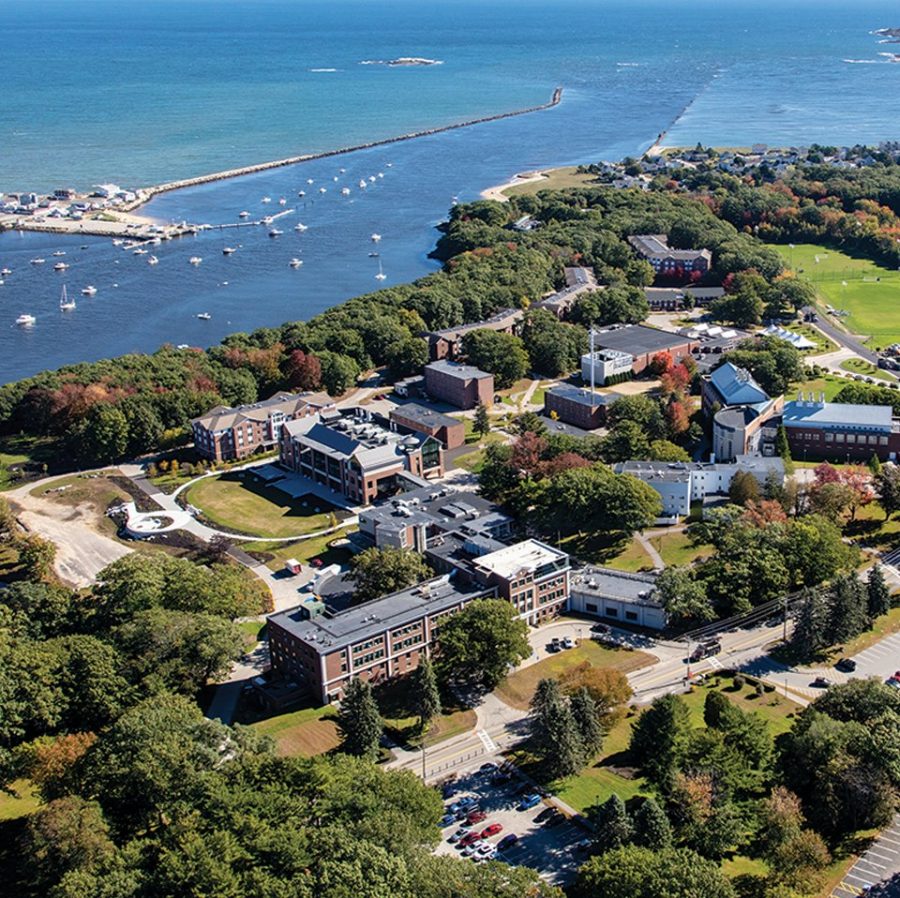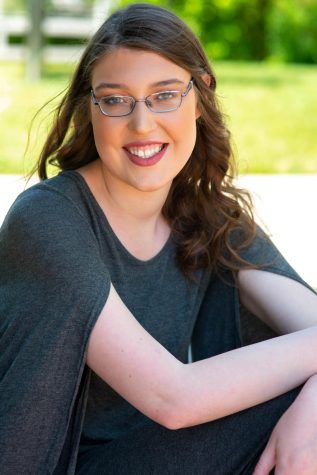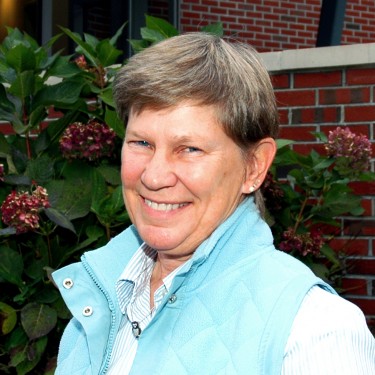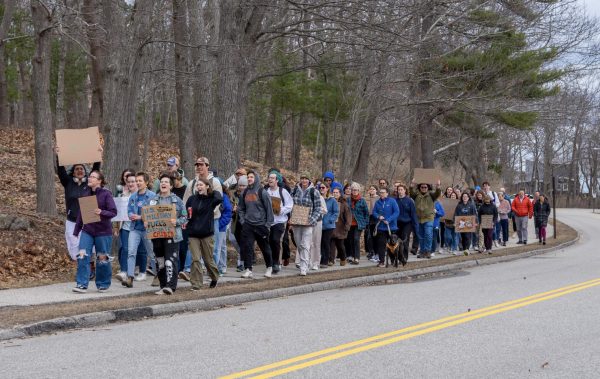Behind the Scenes at UNE
President Herbert discusses some of the big changes coming to UNE in the near future.
The University of New England
Ambitious institution-wide changes are coming to the University of New England and President James D. Herbert Ph.D. is at the forefront of them. In his fifth year as UNE’s sixth President, James Herbert has been busy with several initiatives and goals, while also handling the challenges that Covid-19 poses to a higher education institute ever since taking office.
After a hiatus because of the pandemic, the president has brought back “The President’s Forums”, which are an event series of moderated panel discussions that discuss controversial issues. On its return, “I want UNE to be a place where we are hard conversations, the things your parents told you not to talk about in polite company, those are exactly the things we should be talking about, sex and gender, and race, and religion politics. Talking about it without adhering to any ideological orthodox, and to do so honestly, and to disagree in a civil way. Higher ed is not doing that enough,” said President Herbert.
President Herbert hosted the fourth event: “Policing in America”, on Monday, November 8th, at 6 p.m. in the Harold Alfond Forum. The event featured a conversation between Neil L. Gross, Ph.D., the Charles A. Dana Professor of Sociology at Colby College, and Brendan McQuade Ph.D., an assistant professor of criminology at the University of Southern Maine, and was moderated by Anouar Majid, Ph.D., UNE’s vice president for Global Affairs and director of the Center for Global Humanities who said, “The speakers probed deeper into the nature of policing, which is exactly what President Herbert has in mind for the forum.” The event was attended by around 75 faculty, staff, and students who watched and engaged with the speakers for a night of civil discourse.
A big picture change in the works for UNE is the plan to move the College of Osteopathic Medicine to the Portland Campus. “What that’s going to allow us to do is to consolidate all of our health programs, with a few exceptions, and brand the Portland Campus as our health sciences campus. It will be unprecedented in New England. There is no other place, even in Boston, that has all the health science on a single footprint,” says President Herbert.
This will make room for new and expanding programs at the Biddeford campus, as it is heading in the direction of being UNE’s undergraduate campus, with few exceptions, “We will utilize the space vacated by the medical school for other needs, like programs that are growing. Our marine program is knocking it out of the park,” says President Herbert. UNE is launching new aquaculture and sports media programs and starting a new major, criminology while expanding the business and entrepreneurship programs as well.
Back in 2018, a year after taking office, President Herbert led a university-wide team to develop the Our Future, Our World strategic plan that’s mission is to better prepare students for the world. Now in 2021, around a year and a half into a global pandemic, where is the progress on that plan?
President Herbert says, “We’ve made good progress.” Essentially, how the plan is executed is that there is a committee that meets regularly for each of the six pillars and each committee is charged with coordinating the efforts for that plan. The President, Provost, and the CFO meet with those committees to review the progress.
Some of that progress looks like this; as a part of the first theme, exceptional teaching and learning, “We’ve launched a new learning management system, Brightspace,” says President Herbert. Brightspace has replaced Blackboard as the primary online hub for academic learning since its adoption at the start of the fall 2021 semester. Since its implementation, Brightspace has received mixed reviews with some students raving about its organization and others who feel the opposite. One such student, undergraduate Nick Miles stated, “It’s a lot more user-friendly than Blackboard was, but I do wish it was better at notifying students of updates throughout the program, but besides that, it’s much more organized.”
UNE has also reexamined the professional advising program, “What we’ve done is a shift to a model where we have professional advising the first two years, and then the faculty serve as mentors more, in terms of career aspirations and how to match the curriculum with what they intend to do in extracurricular, co-curricular activities, that sort of thing,” says President Herbert. This is in response to advising formally being decentralized, meaning that there was no overall university-wide standard for academic advising as it was being done per respective academic department level.
“Students were sometimes getting the wrong advice about a course pathway,” says President Herbert. Decentralized advising, “Was putting an additional burden on faculty as well, who, you know, really their expertise is not so much the nitty-gritty of the curriculum, but more a mentorship role with the students.”
In other developments, the undergraduate core curriculum has been going through a three-year revision, with the 2021/2022 academic year being the third year, with a goal of addressing the fact that the curriculums for the College of Art and Sciences and the Westbrook College of Health Professions were developed differently. “If you (a student) transfer across colleges, we make it way too difficult. And we also don’t have enough flexibility within the curriculum to allow students to carve out their own paths,” says President Herbert.
One faculty member who has been involved in this review is Professor John Waterman, Ph.D. He said, “It’s meant to make the whole curriculum experience easier.” By easier, he means that the changes coming to the core curriculum are intended to make navigation of the curriculum and acquiring classes for your major easier, and provide more flexibility to explore other areas of education.
As for the four-year themes, Environmental Awareness, Social and Global Awareness, Critical Thinking, and Citizenship, they are most likely here to stay. However, the review will most likely not keep the linear organization of them. “What’s been agreed upon is using this framework of learning outcomes to organize the curriculum based on what you are supposed to come out of the class with,” says Waterman. Any current students will finish out their time at UNE on the curriculum they started with, but incoming students in 2022 or 2023, might start on the revised curriculum.
Back in August, UNE had a university council retreat for the senior leadership team. At the retreat, there was a unanimous consensus that “November of 2022 is when we’ll be wrapping up the current strategic plan,” said President Herbert. At that time, “We’re going to do a refresh, which means we’ll keep the high-level priorities, but with the input of the whole community, faculty, professional staff students, will dig back into each of those six priorities and see what new initiatives we need to update within each of them.”
Touching upon another theme with recent developments, priority four, a vision for a welcoming, inclusive, and vibrant community, was led by the Associate Provost for Community, Equity, and Diversity, Dr. Chris Hunt. He led the committee on diversity, equity, and inclusion and departed UNE on his own terms over the summer due to wanting to be closer to home. UNE is currently doing a nationwide search for a provost and assistant/associate provost for diversity, equity, and inclusion (DEI), in an email sent out by President Herbert, who said, “We will partner with Diversified Search Group, the nation’s leading higher education search firm, for both of these searches.”
The position is currently being filled in an interim capacity by Ed Silva, UNE men’s basketball coach, who the President was quick to elevate for the undertaking, “I’m just very pleased that the work continues even with Ed as the interim, and he’s doing a good job.”
During this semester, a couple of DE&I goals and initiatives have been ongoing, such as raising awareness for DE&I, and social justice issues. “Our Center for Excellence in Collaborative Education(CECE) and the College of Osteopathic Medicine (COM) have offered tremendous programming. All semester, CECE and the Director for Faculty & Staff Development at COM have, in collaboration with many departments on campus, provided informative and inspirational sessions,” says Silva. Alongside that, there has been a push to embed DE&I into the curriculum with the Center for Excellence in Teaching & Learning (CETL) creating the DE&I Teaching Scholars positions and Faculty Learning Communities.
On a student level, two clubs have been active in their role in DE&I; the Storming to Change in Athletics and Female Athlete Alliance. On their activeness, “I had the great fortune of facilitating workshops on Allyship and Microaggressions with the groups and really was impressed and inspired by their level of commitment to DE&I,” says Silva.













